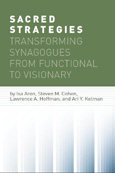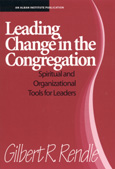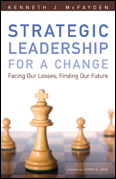While the American synagogue was built with the financial support of what are commonly called three-day-a-year Jews, referring to those who may attend the synagogue for worship only on Rosh Hashanah and Yom Kippur, that generation of occasional synagogue attendees is losing interest in the synagogue. Thus, either people are fully embracing the synagogue-and willing to support and participate in it-or they are unwilling to support an institution in which they do not participate. Without support from these two groups, the synagogue may no longer be financially viable in its current form.
Yet, all is not lost. The experience of being fully American has also motivated large segments of millennials to embrace religious practices that their recent ancestors rejected out of fear, thinking that such practices would prevent them from becoming fully American. Consider the Reform movement in Judaism, for example. Its members are now embracing those very rituals and practices that the early Reformers rejected as too Jewish (read: not American enough). Ironically, the desire to become fully American was essentially what motivated the Reformers (in the United States) in the first place to shape Reform Judaism. Nothing can keep this generation from being fully American. At the same time, this notion of becoming fully American may account for the dramatic increase in intermarriage among millennials.
Some will argue that the downturn in the economy-since 2008-has caused the synagogue to falter. I believe, however, that all the slowdown in the economy did was to force people to realize that these issues were bubbling under the surface of synagogue life. An expanding economy allowed leaders to ignore the problems. Those who still blame the woes of the synagogue on a faltering economy maintain that people are simply no longer able to afford the increasing costs of synagogue membership. Thus, the population base of the synagogue has shrunk. The same argument is being made by other Jewish institutions as well. In other words, all we have to do is fix the economic problems in the nation as a whole and the problems in the Jewish communal institutions will be resolved at the same time. But this is not the case. The challenge facing the synagogue is not an increase in the cost of membership. The challenge facing the synagogue is a decreasing cost benefit felt by its members.
The role of institutional leadership, particularly among clergy, must also be considered. Rabbi Irving (“Yitz”) Greenberg, contemporary Orthodox theologian who founded Clal (The National Jewish Center for Learning and Leadership) and was president of the Jewish Life Network, argued thirty years ago that we were on the cusp of a change in leadership models that would drive the Jewish community into the future. Up until that time, and for the prior two thousand years, synagogue and communal authority rested primarily with the rabbi. While the term rabbi may still be used to refer to Jewish clergy, the role of such clergy, particularly as communal authority, has evolved considerably. I contend that as the synagogue further evolves, so must its religious leadership.
It is conceivable that your synagogue may be one of the few religious institutions that will not change but will continue to flourish in the years ahead because a sufficient number of members are willing to support it. But based on what I see happening to synagogues throughout North America, I am willing to prophesy that the majority of synagogues-and other Jewish communal institutions-will undergo significant change during this generation, if they haven’t done so already. Such radical change will be necessary for synagogues to successfully evolve so that they can better serve the community.
This kind of change will require bold leaders with vision and determination. Some synagogues already have the adaptive leadership necessary to navigate this change. Those that do not have such leaders may not survive. They certainly will not thrive. Some institutions and their leaders are afraid of the trends-and the changes that accompany them. Others welcome the opportunity for such change. I am among those who are excited about what the future Jewish community will look like and what it will offer. While we have accomplished a great deal to this point in our history, the best days are yet to come-if we are willing to respond to the challenges set forth in this volume and do the hard work necessary to elevate the synagogue to sacred heights.
Ten Things We Know about Communal and Synagogue Leadership
- Paraphrasing a rabbinic teaching, “A leader can only take a community where it is prepared to go.”
- Leaders have to lead with vision. Superb skills and effective tactics are necessary complements but insufficient replacements for leadership.
- Leadership is a strategy. It is not a state of being or a personality trait.
- Leaders have to be allowed to lead. They can’t be bogged down by bureaucratic process or held back by a volunteer board.
- Leadership transcends the barriers of age. The ability to lead is neither limited by age nor determined by it.
- Leadership is earned. It is not an entitlement or a designation.
- Leaders are not afraid to work in partnerships with others, nor are they afraid of others climbing on their shoulders and reaching higher. They are also not afraid that their ideas will be lost through what is now being called Open Source Judaism (anything Jewish that is available for free on the Internet and elsewhere).
- Leaders are willing to take risks that may be uncomfortable for others. As a result, leaders are not afraid of failure.
- Leaders are not afraid to show others their human vulnerabilities.
- Leaders want to raise up disciples and are not afraid of losing their role to those whom they have raised up.
Adapted from Playlist Judaism: Making Choices for a Vital Future, copyright © 2013 by the Alban Institute. All rights reserved.
Copyright © 2013, the Alban Institute. All rights reserved. We encourage you to share Alban Weekly articles with your congregation. We gladly allow permission to reprint articles from the Alban Weekly for one-time use by congregations and their leaders when the material is offered free of charge. All we ask is that you write to us at alban@div.duke.edu and let us know how Alban Weekly is making an impact in your congregation. If you would like to use any other Alban material, or if your intended use of Alban Weekly does not fall within this scope, please submit our reprint permission request form.

Playlist Judaism
Kerry M. Olitzky
“Every Jewish institution,” writes Kerry Olitzky, “is undergoing significant change and is in danger of becoming irrelevant to the majority of North American Jews. All these institutions will have to reimagine themselves if they are to survive and grow. And the most numerous of these institutes is also the most vulnerable: the synagogue.”
The synagogue as we know it developed in response to a variety of needs, often in an attempt to create new communities for education and assembly as populations moved from urban centers to the suburbs. These needs have changed, and the synagogue is no longer the center of social and professional life. Change is necessary, but what will a synagogue that serves the new needs of American Jewish religious life look like?

Sacred Strategies: Transforming Synagogues from Functional to Visionary
Isa Aron, Steven M. Cohen, Lawrence A. Hoffman, Ari Y. Kelman
Sacred Strategies is about eight synagogues that reached out and helped people connect to Jewish life in a new way—congregations that had gone from commonplace to extraordinary.
Over a period of two years, researchers Aron, Cohen, Hoffman, and Kelman interviewed 175 synagogue leaders and a selection of congregants (ranging from intensely committed to largely inactive). They found these congregations shared six traits: sacred purpose, holistic ethos, participatory culture, meaningful engagement, innovation disposition, and reflective leadership and governance.
 Tomorrow’s Synagogue Today: Creating Vibrant Centers of Jewish Life
Tomorrow’s Synagogue Today: Creating Vibrant Centers of Jewish Life
Hayim Herring
In the past decade many intelligent people who care deeply about synagogues have written about them. So how is this book different from all other books? Many books take the overall mission of the synagogue as a given, and the recommendations around structure are really about incremental change. Tomorrow’s Synagogue Today stimulates the reader to unleash the power of synagogues to exponentially influence people’s Jewish lives.
 Leading Change in the Congregation: Spiritual and Organizational Tools for Leaders
Leading Change in the Congregation: Spiritual and Organizational Tools for Leaders
Gilbert R. Rendle
Many books have been written about leadership and change, but until now none has focused on the kind of change that tears at a community’s very fabric. Alban senior consultant Gil Rendle provides a respectful context for understanding change, especially the experiences and resistances that people feel. Rendle pulls together theory, research, and his work with churches facing change to provide leaders with practical diagnostic models and tools. In a time when change is the norm, this book helps to “lead change” in a spiritual and healthy way.
 Strategic Leadership for a Change: Facing Our Losses, Finding Our Future
Strategic Leadership for a Change: Facing Our Losses, Finding Our Future
Kenneth J. McFayden
Many congregations are experiencing significant change both within and beyond their walls, and both members and leaders feel a sense of loss in the midst of these changes. In the midst of change, loss, and grief, congregations yearn for leadership—typically with differing expectations of what constitutes effective leadership in response to their needs, hopes, and priorities. At the same time, congregations resist leadership. After all, leadership assumes those who follow will be open to more change.
 Dealing with Difficult Behavior
Dealing with Difficult Behavior
Leader: Susan Nienaber, Alban Consultant and Author
Location: Epworth-by-the-Sea, St. Simon’s Island, GA
Date: February 11 – 13, 2013 – Part of an Alban Cluster of Learning Events
Celebrate Alban’s 40th Anniversary

Register for any 2014 Alban event
before December 31, 2013 and save $40.
